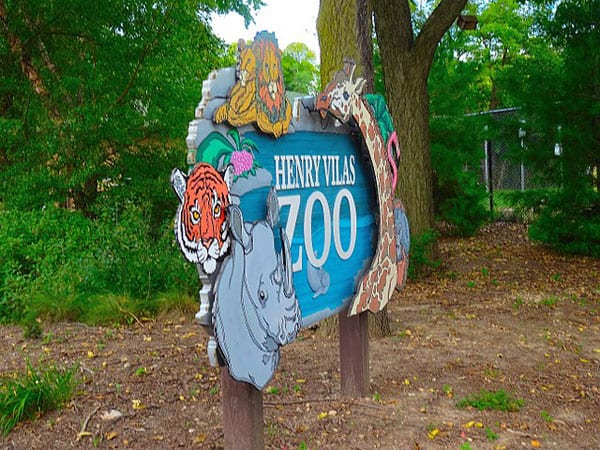
March 20, 2019, Wisconsin State Journal and WISC-TV (Channel 3000)
In yet another story of a split between a nonprofit and an organization acting in support of it, the Henry Vilas Zoological Society in Madison appears to be breaking up with the county-owned and operated Henry Vilas Zoo.
The zoo in Dane County, Wisconsin, is on land owned by the county that was donated in 1904 by William and Anna Vilas to provide a public park in honor of their young son who died from diabetes complications. The donor intent for this gift was to provide a place for pleasure that would remain free to the public. The zoo opened in 1911.
The Henry Vilas Zoological Society (HVZS) began as the Madison Zoological and Aquarium Society in 1914, and subsequently reorganized in 1926 under the current name. In the current contract, which expires March 31st, the HVZS is to provide financial support; operate the concessions, the carousel and other attractions; coordinate volunteers; and help with educational programs. The HVZS claims that new conditions would diminish their ability to raise funds. Dane County claims that the zoo will lose its accreditation from the Association of Zoos and Aquariums if the HVZS’s contract requirements are met, since accreditation does not allow for support organizations to control operations.
Dane County’s proposal, according to HVZS, includes changes in organization and procedures, along with moving the existing HVZS offices and staff off the zoo grounds. The county would also coordinate the volunteers and run the income-producing concessions. The proposal does expect that the financial support from HVZS would be reduced.
Joe Parisi, county executive, sent a letter to the HVZS with his concerns that the HVZS is redirecting funds that the public thinks are used for the care of animals. “If the HVZS’s intent was truly to support the zoo, dollars raised at the zoo and in the name of the zoo would go back to the zoo,” Parisi says in the release. “Instead, funds raised in recent years have gone to accounts inaccessible to the zoo, without the zoo’s knowledge.” He adds that the county is prepared to step in financially, over the current $1.7 million county money already spent, to keep the zoo running, the animals well, and entry free, if HVZS does not sign the new contract: “Concessions will operate. The Carousel will turn.”
Parisi says zookeepers and staff “are 110 percent committed to making sure those who step through those turnstiles on April 1st will have the same on grounds experience that families have come to expect from our fabulous free zoo for many decades.”
The HVZS has raised $6 million, which includes funds committed to an endowment, and has a budget of $3 million. Parisi claims that the HVZS has 68 employees of its own, more staff than the zoo uses to run the facility.
“You can imagine our surprise when we learned in your letter than you have 68 employees that work for the HVZS,” Parisi said. “The HVZS’s push to increase its own staff created artificial and inefficient demand for precious financial resources raised on zoo grounds.”
This is a bit confusing, since the HVZS informed Dane County that it has 68 staff while its 990 lists zero employees, with 400 volunteers. However, HVZS spent around a third of their $3 million budget on staffing using an external contractor, making the employees technically employees of a third party, not HVZS. As Shelley Mesch of the Wisconsin State Journal explains:
Sign up for our free newsletters
Subscribe to NPQ's newsletters to have our top stories delivered directly to your inbox.
By signing up, you agree to our privacy policy and terms of use, and to receive messages from NPQ and our partners.
The society paid QTI Group, a staffing firm, $922,147 in 2017 to fund employees’ salaries, benefits and other employment costs. Parisi, in his memo, questioned why the society would hire an outside group.
Amy Supple, vice chairwoman of the society’s board, said the organization hired a staffing firm to lower costs. QTI operates human resources and payroll needs for the society’s 13 full-time staff members and about 50 part-time employees for less than it would have cost the society to hire its own human resources and payroll managers.
“We have been in negotiations with the County over the past year, working in good faith to develop a new operating agreement that would enable HVZS to continue its mission of supporting the zoo,” said the president of the board of directors at HVZS, Tom Hanson. “Unfortunately, much to our disappointment, the County has recently put forth terms that we cannot agree to and that will significantly diminish the ability of the parties to continue under a highly successful public-private partnership.”
But what is the ethical point here in the search for transparency—no staff reported to the IRS but paying for over 60 employees. Is that working in good faith?
What’s more, charges of misconduct have been added to this mess. HVZS staff have filed complaints with the Dane County Human Resources that the zoo director, Ronda Schwetz, and a researcher made comments that were demeaning and sexually explicit, according to letters sent by Tom Hanson.
The allegations included a vulgar term and a charge of excess drinking during the conferences.
“[Society] staff believe their jobs and personal safety are being threatened,” Hanson wrote to the county. “As a result, we cannot feel comfortable with the county’s proposed contract in which zoo leadership will have ‘ultimate authority’ over the (society) and its employees and actions.”
Clearly, transparency is lacking here. As a funder, an organization that raises dollars and grants them out, should HVZS have authority in running the county’s zoo?
The county’s deputy corporation counsel, Carlos Pabellon, has stated that after an internal investigation, the charges against the zoo director “were not substantiated.” They are still investigating the unnamed researcher, who is not an employee of the zoo.
Josh Wescott, chief of staff for Parisi, has said that no agreement between HVZS and Dane County has been reached and the relationship will end. The cause of divorce seems determined: irreconcilable differences.—Marian Conway












